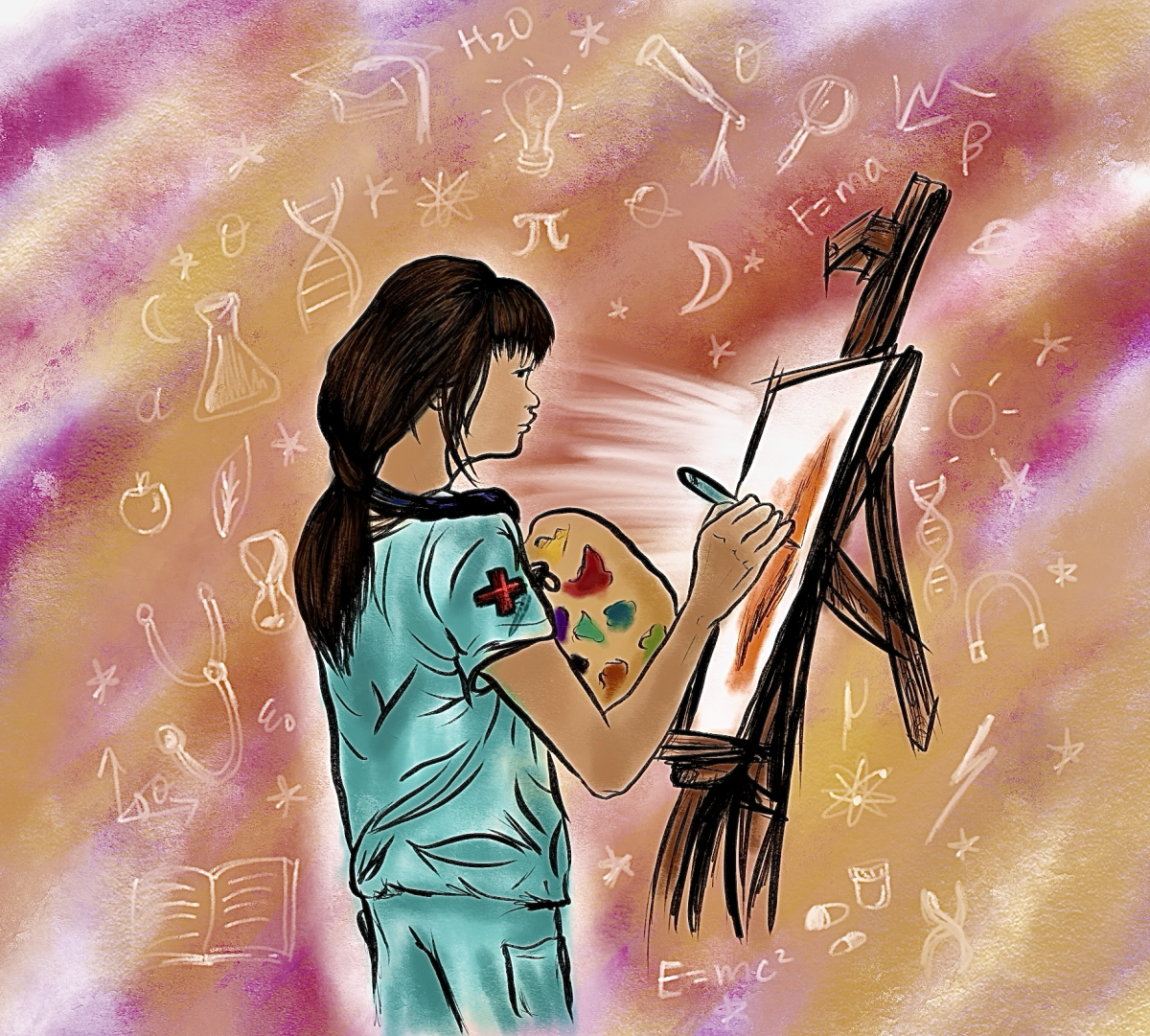The amount of ways to acquire admittance to medical school is endless; however, due to low matriculant rates, many pre-meds are attempting to align themselves with the checkboxes that typically garner admission. Research, shadowing and community involvement have all become intertwined with pre-med culture, oftentimes forcing prospective physicians to push aside their non-medical passions for these stereotypical essentials.
Though alluring, these “fundamentals” take away from the college journey and don’t permit the essential point of university: to explore. As a pre-med student, it is essential to follow your interests and commit to activities that align with those fascinations, so a more fulfilling collegiate experience is cultivated.
Rohan Mehta is a Texas Ex who is currently in his first year at NYU Grossman School of Medicine. Despite falling outside the typical College of Natural Science degree, Mehta found satisfaction in undertaking a non-traditional path through the Cockrell School of Engineering.
“I picked my degree because it was something I was really interested in,” Mehta said. “I think I really got to grow as a person because I got to do the things I wanted to do and learn about before committing the rest of my life to something very demanding.”
The lack of flexibility in medical school is burdensome, and undergraduate years are one of the last times to pursue something without worrying about the density of medical education. The fresh insights you gain from participating in non-medical activities can then enhance your career as a physician and offer a distinct perspective that could be highlighted in a medical school application.
As a pre-med student myself, I have seen significant growth in engaging in opportunities that are considered unconventional. By becoming an opinion columnist on the Daily Texan, I have allowed myself to share opinions and stories that impact students’ lives on a daily basis. Furthermore, I have found my love for advocacy through the Texan, a trait of myself that I would not have discovered otherwise. Finally, I have seen a substantial amount of improvement in my writing and communication – skills I can use when applying to medical school and interacting with patients in the future. All it takes is one step outside the box and so many avenues become available.
Though there is an incentive in taking part in entities that do not fall within the medical school checkboxes, there is a balance that needs to be acknowledged, and that balance according to Assistant Dean of Admissions at Dell Medical School Joel Daboub is best found when identifying one thing: connection to medicine.
“I am intrigued when I see somebody has taken this pathway that they have a passion for and they can relate that back to why that has now motivated or informed their choice to go into medicine,” Daboub said. “If you study Shakespeare, you can relate that back to the human connection and talk about how studying literature motivated you to then think about how people are cared for … So you just have to be able to tell us, how did you get there?”
And in answering that question, the aspects of a medical school application seemingly come together naturally. By looking internally and addressing why you want to pursue medicine, admission officers can see passions, motivations, skills and future impact, regardless of whether or not an individual has only completed ventures related to medicine.
Applying to medical school is daunting, and the extreme uncertainty of receiving an acceptance letter leaves many obligated to conform themselves within the lines. To have a satisfying and distinctive experience, undergraduate pre-med students should embrace curiosity and engross themselves in activities that align with their passions alongside required medical experiences. Because when you are on that stage with a graduation cap on, the last feeling you want is to regret how you spent your time in college.
Anwar is a neuroscience freshman from Plano, TX














